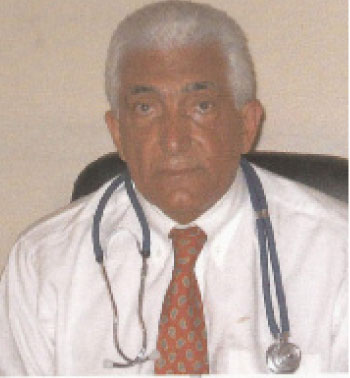
Many women choose to fast in pregnancy due to their personal beliefs or religious commitments.
If you want to fast, especially for long spells such as Ramzanit’s important to take extra care of yourself. Read on to find out how to make your fasting experience a good one.
There’s no clear answer. Despite research, we can’t be sure that fasting is safe for you and your baby.
However, fasting in pregnancy appears to be safer for you and your baby if you feel strong and well enough, and if your pregnancy is going well.
If you don’t feel well enough to fast, or are worried about your health or your baby’s well being, speak to your doctor or Nurse before deciding to fast. They will most likely review your physical health and medical history. they probably check for other complications, such asdiabetes in the pregnancy , anaemia or twin pregnancies before giving you the go-ahead.
One factor is when the fast takes place. For example, if Ramzan coincides with summer, like now in the Gambia this means hot weather and long days, which puts you at greater risk of dehydration.
What are the things you should keep in mind if you are’ fasting
Try not to have high sugar foods and caffeinated drinks like coffee and tea during your fast.
.If the weather is hot and humid, stay indoors during the peak heat hours.
· If fluids are allowed ensure you keep sipping water, milk or fresh fruit juices at regular intervals.
· Try to rest for some time during the day. It is best to not do any strenuous work and exercise while you’re fasting.
·Fasting slows down your digestive system, so remember to break your fast slowly. Drink a small glass of juice or coconut water first and then follow it up with a light meal.
· If you suffer from extreme exhaustion, fatigue, palpitations, abdominal cramps or severe nausea and acidity speak to your doctor right away.
Do not feel bad about missing your fast; there are other options that you could consider
For many women fasting is an integral part of their lives, especially if it is a custom or a religious belief. So it’s understandable that you are upset at the thought of giving up something you value deeply.
Considerthe following:
to protect your eyes from the glare. Drink lots of water to keep you hydrated as well.
·Eat little and often·Instead of a daily fast, can you fast on the first and last day of the fasting period?· Is it possible to fast weekly or on alternate days instead of a daily fast?
· Could you choose a fruit fast instead of giving up all food and drink?
· Are there any exemptions or allowances for pregnant women, such as breaking the fast early or making up by fasting later?
· Is it possible to share the fast with another family member? Some husbands offer to keep the fast for half a day while their wives fast for the other half.
· Could you substitute the fast with other forms of sacrifice such as abstaining from certain foods like non-vegetarian fare, sweets, certain cereals or salt?
Find out more about: Tips for a healthy fast newly pregnant and feeling ill. Should I fast?youhad a miscarriage (abortion), lost my pregnancy before. Will fasting put my current pregnancy at risk?
Why you are getting terrible headaches when pregnant?
It’s not unusual to get headaches when you’re pregnant, especially in the first trimester. And if you’ve always been susceptible to them, pregnancy can make the problem worse.
Headaches in pregnancy are probably caused by hormones, and changes in the way your blood circulates. If you have given up caffeine, this can also make your head pound. Other possible reasons include fatigue, sinus congestion, high blood pressure, stress and hunger. Headaches can also be caused by too much exposure to the sun and dehydration.
Migraine headaches are different. Some women who usually suffer from migraines find they have less trouble with them during pregnancy. Others find these painful episodes becoming more frequent and intense when they are pregnant.
What can you do to relieve headache pain?
Most headache medications, such as aspirin and ibuprofen, are not recommended for pregnant women. Paracetamols, however, is considered safe for occasional use. But before you pop a few pills, try one of these safer alternatives:
· Work out what’s triggering the pain
Do you get a pounding headache after being cooped up in a hot, stuffy office all day? Then take regular fresh air breaks. Are your headaches linked to arguments with your husband or power struggles with the children? Think of ways to defuse these situations before they cause you physical pain.
Headaches may also be a sign of an allergy. If you find that certain smells or foods irritate your system and cause a headache, it is best to avoid them.
· An old-fashioned compress
Apply a warm compress around your eyes and nose for sinus headaches, and a cool compress at the base of your neck for tension headaches.
· Treat that cold
a cold and stuffy nose can give you a headache. Try relieving the pain using a steam inhalation with a drop or two of peppermint oil added.
· Beat the heat
when out in the sun, use an umbrella or pupate to cover your head and dark glasses
Low blood sugar is a common cause of headaches. Try eating smaller, more frequent meals. If you’re on the move, keep some snacks (crackers, fruit, whole-wheat biscuits) in your bag.
· Stay active
there is some evidence that regular exercise can reduce the frequency and severity of migraines. A walk in the neighbourhood park or a dip in the swimming pool at least once a day can be effective.
·Get your eyes tested
Sometimes pregnancy may affect your vision, causing headaches. A trip to the ophthalmologist may help.
· Take a cold shower
This is a simple but effective remedy for some migraines. It works by constricting the dilated blood vessels in the head to bring fast, if temporary, relief. If you can’t take a shower, splash some cool water on your face.
·Take a break
Sometimes a headache may be brought on by fatigue and exhaustion. Getting some sleep may be the best way to take care of the pain.
Can a headache be a sign of something more serious?
On rare occasions, yes. For example, if you also have high blood pressure or protein in your urine, your headaches could mean that you have pre-eclampsia. This is a serious form of high blood pressure in pregnancy. But for the vast majority of women, headaches during pregnancy are simply an unpleasant but temporary side-effect of carrying a child.
Will I suffer with headaches throughout my pregnancy?
Probably not. For most women, pregnancy headaches tend to diminish and even disappear. Experts believe this is when the flood of hormones stabilizes, and the body gets used to its pregnant state.
Why are you so tired now that you are pregnant?
You’re not the only one! A constant feeling of fatigue is very common in the early stages of pregnancy. Being pregnant puts a strain on your entire body, which can make you very tired . What many women remember most about the early stages of pregnancy is that constant feeling of fatigue.
In the first trimester, your body works especially hard. It’s the time when you’re making the all-important placenta, your baby’s life-support system. This process continues until the end of the first trimester. Meanwhile, your hormone levels and metabolism are rapidly changing, and your blood sugar and blood pressure tend to be lower. It’s not surprising that you feel tired!
However, if you are also feeling dizzy or occasionally fainting, you may be anaemic and should speak to your doctor. If your doctor hasn’t prescribed iron supplements until now, she may do so.
How long will this tiredness last?
Everyone is different, but pregnant women usually experience fatigue in the first trimester and at the beginning of the second trimester. After that, you’ll probably feel a burst of energy that will last until your third trimester. Then sometime around your seventh month you may begin to lose steam again.
What can you do to cope with tiredness?
· Listen to your body’s signals. Try taking catnaps or going to bed early. At work, even a 15-minute nap can make a difference. If you’re lucky enough to have a private cabin at work, shut the door; put your head down on your desk, and rest.
· Try to adjust your schedule. If possible, arrange to take work home over the weekend so you can go home early once in a while. Or, if you’re already a mother, give yourself a break now and then. Ask your parents or a close relative to look after your children, so you can catch up on your sleep. Make a conscious effort to take short breaks from household chores. Sit down and put your feet up to relax your tired body.
· Make sure you’re eating properly. A healthy diet made up of vegetables, fruits, whole grains, skimmed milk and lean meats can be energising. Junk food, by contrast, actually saps your energy.
· Take your vitamin supplements regularly. Lack of calcium, iron and vitamin D in your body may also result in fatigue. Make sure you have your recommended dose of vitamin supplements.
·Find something interesting to do. If you often feel bored or fed up, fatigue may make it worse. This may be a good time to connect with friends and relatives. Or try taking up a hobby that will keep you busy, but take care that it does not leave you exhausted.
·Release tension. Stress can drain you of energy. Consider practicing some meditation and relaxation techniques to help release tension in your mind and body.
· Hang in there. Soon enough you’ll be in your second trimester and feeling more energetic again. You may even feel ready to take in a late show occasionally or go on a weekend break . But try to stock up on your sleep while you can. Once your baby is born, you’ll be looking back on this period of undisturbed nights with nostalgia!
Why you feeling dizzy?
Dizziness is a common feature of pregnancy. Between half and three quarters of pregnant women feel dizzy to some degree. The reason for your dizzy spells varies depending on how far into your pregnancy you are.
Dizziness in the first three months
early in your first trimester, you may feel dizzy and have bouts of nausea as your blood flow works to catch up with your rapidly expanding circulatory system. This happens because the pregnancy hormone progesterone relaxes the walls of your blood vessels, causing your blood pressure to fall. This can make you more likely to feel dizzy from as early as eight weeks. Your body is usually able to adjust to these changes, but you may sometimes feel dizzy and light-headed.
Dizziness in the second and third trimester
In the second trimester, your growing womb (uterus) can put pressure on blood vessels. This can make you feel dizzy. Lying flat on your back can also cause dizziness in the later stages of pregnancy.
It’s very common to feel dizzy occasionally during your pregnancy. This can be for a number of reasons:
· If you stand up too quickly your blood doesn’t have enough time to reach your brain. This is also called postural hypotension.
· If you lie down for too long. About one in 10 pregnant women experiences this because of low blood pressure.
· If you haven’t eaten for a while and your blood sugar is low, especially in the late afternoon.
· If you are anaemic or suffer from varicose veins.
· If you are dehydrated or anxious.
· Excessive exercise or anxiety can sometimes cause you to hyperventilate and feel faint, especially if you’re feeling tired or not well.
When should you check with your doctor or Nurse about your dizzy spells?
You should see your doctor, or Nurse if you faint, if you are often dizzy or if you have dizziness as well as:
·pain in your pelvic area or belly
·shortness of breath
·blurred vision
·palpitations
·headaches
·vomiting
Persistent dizziness or dizziness accompanied by blurred vision and headaches or palpitations can be a symptom of severe anaemia or other serious illness that could affect your pregnancy. In rare cases, dizziness accompanied by severe lower abdominal pain and vaginal bleeding, especially early on in pregnancy, may indicate an ectopic pregnancy. In such cases, contact your doctor immediately.
Dizziness can also be caused by something that’s nothing to do with your pregnancy, such as allergies or panic attacks. It can also be because you’re breathing too fast or too deeply (hyperventilation). That’s why if you have any concerns, you shouldn’t hesitate to get help. But keep in mind that feeling dizzy - from heat, hunger, nausea, or getting up too fast - is often just part of being pregnant.
For further information E- Maile on azadehhassan@yhaoo.co.uk, send text to 002207774469/3774469 between 3-6 pm
Author Dr Azadeh Senior Lecturer at the University of the Gambia, Senior Consultant in Obstetrics &Gynaecologist, Clinical Director Medicare Health Services




